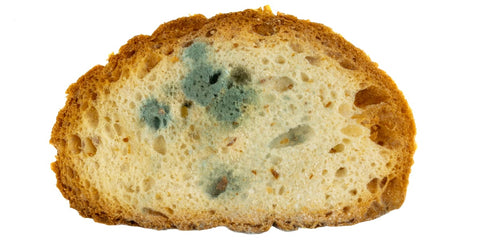Orange juice, a staple of breakfast tables, is known for its refreshing taste and vitamin C boost. But if you're prone to acid reflux, you might be wondering, "Can orange juice cause heartburn?" The answer, unfortunately, is often yes.

This article delves into the relationship between orange juice and heartburn, exploring its acidity, potential triggers, and offering insights into managing acid reflux through dietary choices and understanding food intolerances.
Understanding Heartburn and Acid Reflux
Heartburn is a symptom of acid reflux, a condition where stomach acid flows back up into the esophagus, the tube connecting your mouth and stomach. This backflow irritates the esophageal lining, causing a burning sensation in your chest.
Can Orange Juice Cause Heartburn? The Acidity Factor
Yes, orange juice is acidic. The pH of orange juice typically ranges from 3.3 to 4.2. This acidity can irritate the esophagus, especially if it's already inflamed due to acid reflux.
Is Orange Juice Acidic? A Scientific Perspective
Is orange juice acidic? Yes, it is. The pH scale measures the acidity or alkalinity of a substance. A pH of 7 is neutral, values below 7 are acidic, and values above 7 are alkaline. Since orange juice has a pH below 7, it's considered acidic.
Acidic Fruits to Avoid: A Dietary Guide
If you're prone to heartburn, you might need to limit or avoid other acidic fruits to avoid, such as:

-
Lemons
-
Limes
-
Pineapples
-
Tomatoes (technically a fruit)
Which Fruits Cause Heartburn? Individual Tolerance
While acidic fruits are common triggers, which fruits cause heartburn can vary from person to person. Some might tolerate oranges but react to grapefruits, while others might find that even less acidic fruits like apples can cause problems.
Are Oranges Good for Digestion? A Balancing Act
Are oranges good for digestion? Oranges offer benefits like fiber, which aids digestion, and vitamin C, which is essential for overall health. However, their acidity can be problematic for those with acid reflux.
Food Intolerance and Heartburn: Beyond Acidity
If you experience heartburn or other digestive issues, even with non-acidic foods, a food intolerance might be a contributing factor.
Food Sensitivity Test Kit: Uncover Your Digestive Triggers
A food sensitivity test kit can help identify specific foods that might be triggering your symptoms. By understanding your sensitivities, you can make informed dietary choices and improve your digestive health.
Key Takeaways:

-
Orange juice is acidic and can trigger or worsen heartburn in some individuals.
-
Other acidic fruits to be mindful of include lemons, limes, and grapefruits.
-
Individual tolerance to acidic fruits varies.
-
Food intolerances can also contribute to heartburn and other digestive issues.
Disclaimer: This article is for informational purposes only and does not constitute medical advice. Consult a healthcare professional for personalized guidance on managing acid reflux and dietary choices.
Frequently Asked Questions:
1. If I dilute orange juice with water, will it still cause heartburn?
Diluting orange juice can reduce its acidity slightly, but it might still trigger heartburn in sensitive individuals. It's best to observe your body's response and adjust accordingly.
2. Are there any specific types of orange juice that are less acidic?
Some brands market "low-acid" orange juice, which may be processed to reduce acidity. However, the effectiveness of these products can vary, and they might still trigger symptoms in some people.
3. Besides orange juice, what other beverages can worsen heartburn?
Other common culprits include coffee, carbonated drinks, alcohol, and tomato juice.
4. I experience heartburn after eating a variety of foods, not just acidic ones. Could it be something else?
Yes, several factors can contribute to heartburn, including:
- Fatty foods
- Spicy foods
- Large meals
- Eating too quickly
- Lying down after eating
- Stress
- Smoking
5. How can I tell if a food intolerance is contributing to my heartburn?
If you experience heartburn along with other digestive symptoms like bloating, gas, or diarrhea, and it seems to be triggered by specific foods, a food sensitivity test might help identify potential culprits.


.png?v=1737390083)
.png?v=1737187409)


